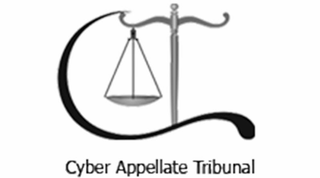Latest News
AN OVERVIEW ON CYBER APPELLATE TRIBUNAL IN INDIA

The Information Act 2000 has established the Cyber Appellant Tribunal. As the name suggests the tribunal has appellant jurisdiction only. Thus, it has authority to exercise its appellant jurisdiction over both on facts as also in law over a decision or order passed by the Controller of Certifying Authorities or the adjudicating officer. In other words, it has the statutory authority to examine the correctness, legality or propriety of the decision or order passed.
CYBER APPELLATE TRIBUNAL COMPRISES OF-
CHAPTER X Section 49 of the IT Act 2000 states composition of Cyber Appellate Tribunal. It shall consist of a Chairperson and such number of other members as the Central Government may notify.
ELIGIBILITY OF THE CHAIRPERSON
A person shall not be qualified for appointment as a chairperson of a cyber appellate tribunal unless he is, or has been, or is qualified to be, judge of the high court.
A person on his selection as a chairperson of the cyber appellate tribunal shall have to retire from service before joining.
TERM OF OFFICE
Section 51 (1) provides a five-year term for the Chairperson or Member of the Cyber Appellate Tribunal. The term states from the date on which he enters upon his office. It will last for five years or until he attains the age of 65 years, whichever is earlier.
POWERS OF CYBER APPELLATE COURT
Section 58(2) of IT act, 2000 states power of cyber appellate courts-
- Summoning and enforcing the attendance of any person and examining him on oath;
- Requiring the discovery and production of documents or other electronic records;
- Receiving evidence on affidavits;
- Issuing commissions for the examination of witness or documents;
- Reviewing its decisions;
- Dismissing an application for default or deciding it ex parte;
- Any other matter, which may be prescribed.APPEAL TO CYBER APPELLATE TRIBUNAL
- Section 57 of Information Technology act, 2000 states about how to appeal and in what cases can file an appeal before cyber appellate courts-
- Appeal to Appellate Tribunal–(1) Save as provided in sub-section (2), any person aggrieved by an order made by controller or an adjudicating officer under this Act may prefer an appeal to a Appellate Tribunal having jurisdiction in the matter.
(2) No appeal shall lie to the Appellate Tribunal from an order made by an adjudicating officer with the consent of the parties.
(3) Every appeal under sub-section (1) shall be filed within a period of forty-five days from the date on which a copy of the order made by the Controller or the adjudicating officer is received by the person aggrieved and it shall be in such form and be accompanied by such fee as may be prescribed:
Provided that the Appellate Tribunal may entertain an appeal after the expiry of the said period of forty-five days if it is satisfied that there was sufficient cause for not filing it within that period.
(4) On receipt of an appeal under sub-section (1), the Appellate Tribunal may, after giving the parties to the appeal, an opportunity of being heard, pass such orders thereon as it thinks fit, confirming, modifying or setting aside the order appealed against.
(5) The Appellate Tribunal shall send a copy of every order made by it to the parties to the appeal and to the concerned Controller or adjudicating officer.
(6) The appeal filed before the Appellate Tribunal under sub-section (1) shall be dealt with by it as expeditiously as possible and endeavour shall be made by it to dispose of the appeal finally within six months from the date of receipt of the appeal.
CONCLUSION
Cyber world is entirely different from the real existing world but it has the capacity to engage crimes that happen in the real world. The Cyber Appellant Tribunal so established to stop cyber-crimes and punish those who are part of it. The efficacy of the Cyber Appellant Tribunal can be improved by creating necessary awareness in the public & the authorities and with efforts to deploy adequate manpower. It is important to enhance technological ability to deal with any situation that will come across. It is necessary to maintain integrity, confidentiality and authentication of communication channels and processes. For certain types of crimes there lies a requirement of certain kinds of courts for faster decision. Following the procedure of natural justice and not C.P.C, decision is expected faster.



































































































